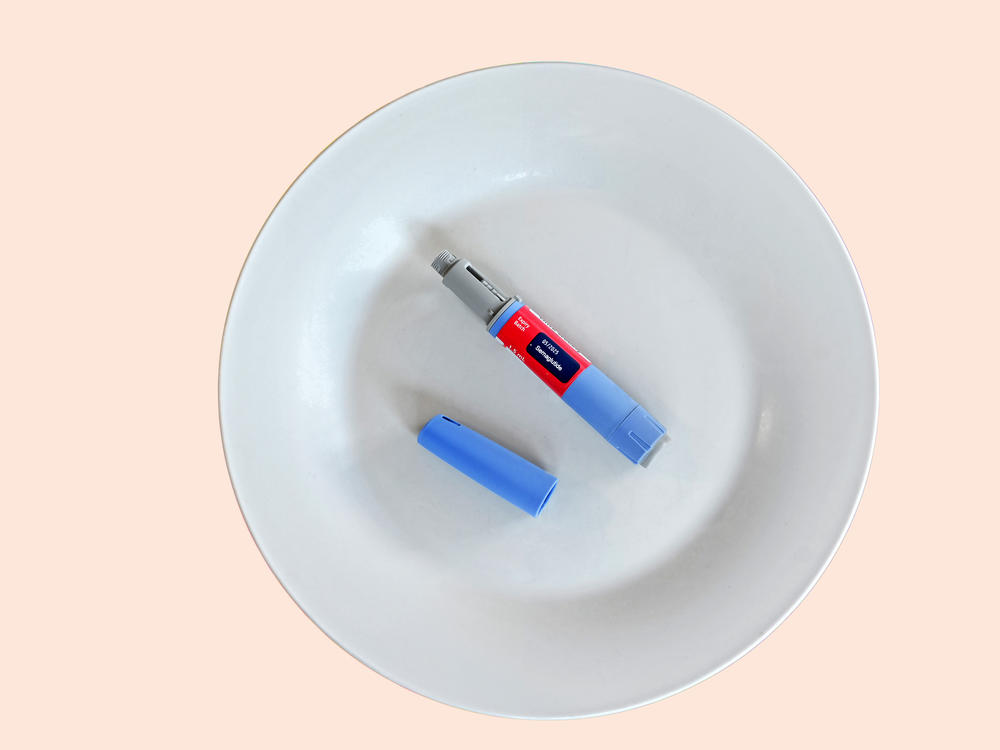Section Branding
Header Content
Have the new weight-loss drugs changed what it means to be body positive?
Primary Content
America is a land of contradictions; while we're known as a nation that loves to eat, we also live within a culture that has long valued thinness as the utmost beauty standard.
Of course, a culture oriented around consumption doesn't necessarily align with that kind of body type, and for some people, tying self-worth to one's weight grew increasingly untenable as diet culture and media messaging leaned harder in one direction: be thin or be nothing at all.
Over the last several years the body positivity movement has pushed back on that notion. It helped lead to more inclusive advertisements and models, larger size ranges for clothing, and a larger push for people to accept themselves at every size. But then came a new class of weight-loss drugs.
You're reading the Consider This newsletter, which unpacks one major news story each day. Subscribe here to get it delivered to your inbox, and listen to more from the Consider This podcast.
The new "miracle" weight-loss drugs
As the new class of weight loss drugs, called GLP-1s, sold under the names like Wegovy and ZepBound hit the market, they immediately became a huge success among Hollywood celebrities, and regular people who wanted to shed weight with less difficulty.
The drugs work by mimicking a hormone that increases satiety and decreases food intake. Though many of them were initially intended for diabetes patients, and can have some serious adverse side effects, the impact of these weight-loss drugs has already been demonstrable. Many of the more popular name brands have faced shortages amidst high demand, and for good reason. Patients have reported losing weight easily and quickly, without having to make drastic lifestyle changes, or even exercise. Some have hailed it as a "miracle" drug.
An uncertain future for body positivity
There is a lot of noise, particularly for women, around what it means to have a healthy body. Plenty of social energy is devoted to debating the value of cardio, or carbohydrates, and which new fad diet might finally work.
But at the end of the day having a "healthy" body has been most synonymous with being thin. Body positivity activists have long challenged that notion with the slogan of "Healthy at any Size."
But New York Magazine contributing writer Samhita Mukhopadhyay grapples with the possible future of a movement like this in her recent article, "So Was Body Positivity All A Big Lie?"
Mukhopadhyay, who describes herself as a body positive feminist, recounted her own experience after taking the weight-loss drug Mounjaro for a year for her own health purposes, and how she sought to understand her relationship to her own body afterwards.
"I think that the celebrity obsession and our obsession with celebrities taking them has created an environment where we are not actually evaluating these drugs for their real value," Mukhopadhyay said in conversation with NPR's Juana Summers.
"That they are a medical intervention, a necessary medical intervention for a country that is grappling with the diseases that are related to obesity and to the size of our bodies and frankly, like the kinds of foods and activity that we have access to. And I think it's really easy to conflate that medical intervention with the demand of compulsory thinness, which is still part of the culture that we live in."
For more on the ever-evolving conversation on health, size and whose business that is, listen to the full episode by tapping the play button at the top of the page.

